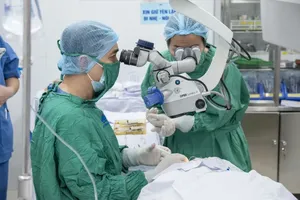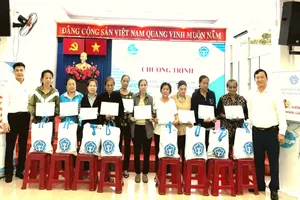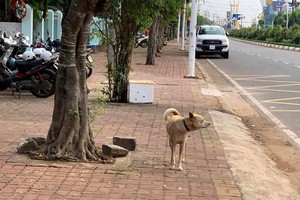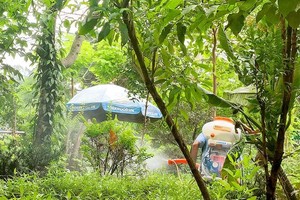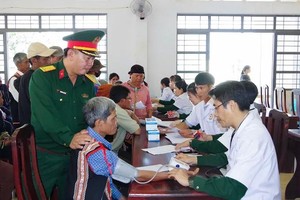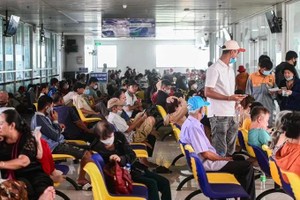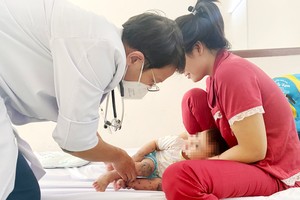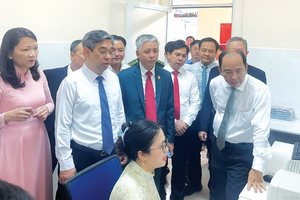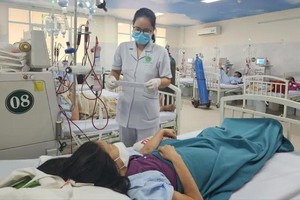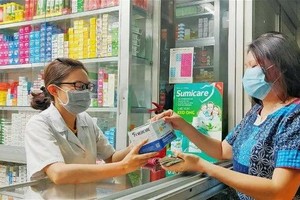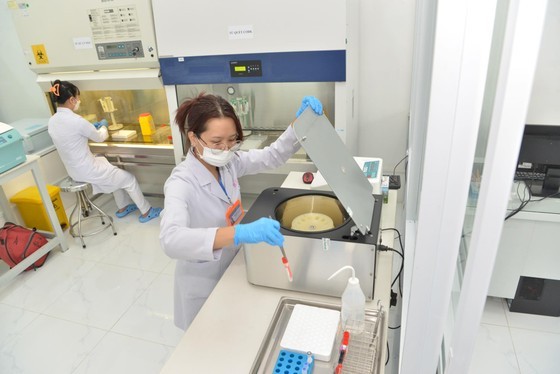 |
The Ho Chi Minh City Center for Disease Control (HCDC) today puts into operation the serum bank |
The Ho Chi Minh City Center for Disease Control (HCDC) today officially put into operation the serum bank to provide a toolkit to assess the burden of infectious disease in the community and guide medical decisions in public healthcare centers in the future.
According to Director of HCDC Dr. Nguyen Hong Tam, a serum bank will collect, preserve, and supply samples for testing of infectious diseases for prediction or early detection of outbreaks, assessment of herd immunity, evaluation of the effectiveness of interventions, and investigation of the silent circulation of the pathogen.
To accomplish these purposes, HCDC will develop a plan to collect periodic samples for the serum bank and develop a set of procedures for storing and using samples for different purposes of pandemic control. The bank will also build data analysis models; thereby, providing orientations for public health decisions in the locality.
At first, HCDC will take samples from the serum bank to assess immunity against measles and hand, foot and mouth disease for assessment of the city’s epidemic risk and later the health sector will continue to expand the sample source and diversify the types of samples to meet the needs of infectious disease control and towards the control of other diseases.
Doctor Nguyen Hong Tam said HCDC's serum bank is equipped with 5 deep sound cabinets, 3 cold centrifuges, equipment and staff to meet the collection, processing and storage. and sample distribution. Currently, the storage capacity of the serum bank is from 4,000-4,500 samples and is expected to increase the storage capacity in the near future.
According to Assoc. Prof. Le Van Tan from the University of Oxford’s Clinical Research Unit, for a long time, countries around the world have built serum banks and serological epidemiological investigation programs. For example, the UK-based serum bank which was established in 1986 has so far collected over 200,000 serum samples from British people of different ages.
In Vietnam, several serum banks have also been established through the epidemiological investigation research program of the Ministry of Health, the Hanoi-based National Institute of Hygiene and Epidemiology, and the Ho Chi Minh City-based Pasteur Institute including surveillance programs of HIV, Zika virus, hepatitis B and C, influenza A H5N1.
In 2022, HCDC coordinated with the University of Oxford to conduct three surveys and collect serum samples to help define immunity to Covid-19 and SARS-CoV-2.
The goal of the serological investigation is to monitor the level of immunity in the population against a particular pathogen for the provision of scientific data to help inform appropriate health policies, such as vaccination policy or response to an emerging disease, said Assoc. Prof. Dr. Le Van Tan.
Speaking at the ceremony, Vice Chairman of Ho Chi Minh City People's Committee Duong Anh Duc congratulated the city's health sector. He said: “The launch of Serum bank is a common joy for everyone, especially for the city's health industry, because this is a big city, people's health care is very important, always one of the most important things in the world. issues of concern to city leaders.
Attended the launching ceremony of the special bank, Vice Chairman of the People's Committee of Ho Chi Minh City Duong Anh Duc said that the city is currently developing a health development project to provide protective care in a bid to protect dwellers’ health as well as improve the HCDC as city leaders hoped that HCDC will operate as other advanced CDCs in the world.






